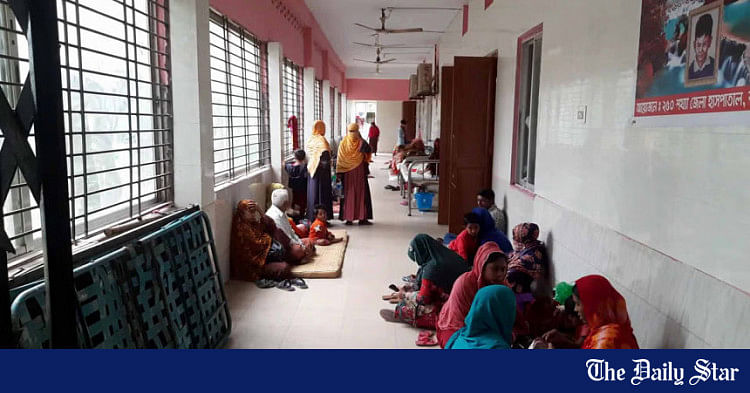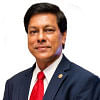Sustainable development requires a healthy, skilled, and tech-savvy workforce. FILE PHOTO: STAR
“>
Sustainable development requires a healthy, skilled, and tech-savvy workforce. FILE PHOTO: STAR
Over the past one and a half decades, the government has undertaken numerous infrastructural projects, developing and renovating roads, bridges, ports, airports, communication, energy and power, etc in the country. While infrastructure development provides the necessary physical foundation for economic growth and social progress, the most critical sectors requiring investment for a country’s overall growth are education and health. Unfortunately, Bangladesh still struggles to adequately invest in these essential areas.
Recent revelations from the draft development budget for FY2024-25 paint a disheartening picture. Both the health and education sectors are set to receive allocations below the targets outlined in the eighth five-year plan. The health sector is allocated just 7.80 percent of the Annual Development Programme (ADP) budget, significantly less than the targeted 11.10 percent. Similarly, the education and technology sector is allocated only 13.70 percent, falling short of the proposed 16.50 percent. Basic economic principles highlight that a well-educated and healthy population is crucial for long-term economic growth and sustainable development. If so, why are these two critical sectors often neglected in this country?
Officials at the Planning Commission say the education and health ministries get lower allocations because they struggle to spend the allocated funds effectively. Additionally, cost overruns and delays in implementing projects are also to blame. Data from the commission reveals that over the past five years, development projects in the health and education sectors experienced cost overruns of 13 percent and 27.5 percent, respectively. Meanwhile, 55 percent of health ministry projects and 34 percent of education ministry projects had to have their deadlines extended. So, why should the public suffer due to management weaknesses?
Bangladesh’s current population is around 17 crore, with 7.37 crore people employed in various sectors and 2.74 crore aged between 15-29 years. However, we have not fully capitalised on the demographic dividend of this large number of young people because we lack a skilled and healthy workforce. Unfortunately, our approach to development has neglected education, research, and health, focusing instead on constructing large-scale infrastructure. Infrastructural development, while essential, is not sustainable without enhancing human capacity. Sustainable development requires a healthy, skilled, tech-savvy workforce, which necessitates proper investment in health, education, and research.
We are already struggling on that front, with research indicating that our garment, real estate, telecommunication, information and technology sectors are facing severe shortage of skilled manpower. Consequently, foreign workers are being hired, leading to huge amounts of dollars leaving the country. Additionally, the lack of investment means that people’s out-of-pocket expenses for healthcare and education will continue to remain high.
Currently, individuals bear a significant portion of medical expenses, with households covering up to 72 percent of all healthcare costs through out-of-pocket payments. This system imposes a heavy financial burden on impoverished families, often forcing them to either forgo treatment or incur debt. Additionally, to manage healthcare costs, families often cut back on essential daily expenses. According to the World Food Programme’s 2023 Food Security Monitoring, 36 percent of Bangladesh’s population suffers from food insecurity, with poverty and malnutrition continuing to co-exist. Nutrition is closely linked to labour productivity. The Asian Productivity Organisation’s Productivity Data Book 2020 reports that Bangladesh’s labour productivity is 10.4 percent, compared to the average of 16.3 percent in South Asia and 27.8 percent in APO countries.
Bangladesh spends 2.3 percent of its GDP on the public health sector, compared to Nepal’s 5.6 percent, Sri Lanka’s 3.8 percent, and India’s 3.8 percent. Developed nations like the UK spend around 10 percent of their GDP on healthcare. In Bangladesh, 65 percent of the health budget goes towards salaries and allowances, with the remainder allocated for development. It is embarrassing that a country aspiring to become an upper-middle-income nation by 2031 and a developed country by 2041 still sees a significant number of its citizens, including politicians, businessmen, and ordinary people, seeking medical treatment abroad every year. This trend indicates a lack of confidence in our own healthcare system. While individuals may argue that seeking overseas medical care is a personal choice, it becomes more alarming when leaders and politicians do the same. Their decisions to seek treatment abroad highlight a serious issue, as they are the ones responsible for developing the healthcare system.
Education, often hailed as the great equaliser, also faces a similar fate. Government expenditure on education is a meagre 1.64 percent of the GDP. This is significantly lower than the averages for LDCs (above three percent), middle-income countries (above four percent), and high-income countries (above five percent). According to UNESCO’s Global Education Monitoring Report 2022, Bangladeshi families cover 71 percent of the total education costs. For fixed-income and poor families, this creates a disproportionate burden.
Insufficient funding in health and education can result in substandard healthcare and human resource development, while also increasing people’s out-of-pocket expenses. These rising costs perpetuate cycles of poverty and vulnerability. Addressing these inequalities requires proper government financing in education and healthcare. If financial constraints are an issue, the government must find innovative ways to fill the gap. Additionally, it should work on increasing the capacity of the relevant ministries to effectively use the allocated funds.
Abu Afsarul Haider is an entrepreneur. He can be reached at [email protected].
Views expressed in this article are the author’s own.
Follow The Daily Star Opinion on Facebook for the latest opinions, commentaries and analyses by experts and professionals. To contribute your article or letter to The Daily Star Opinion, see our guidelines for submission.




